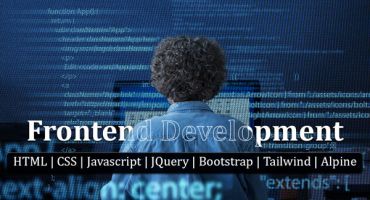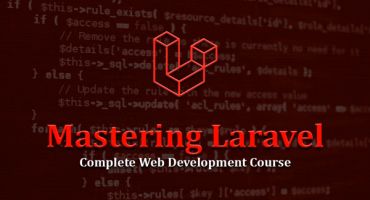Laravel has grown to become one of the most popular backend frameworks for web development in recent years. With its expressive and elegant syntax, robust tooling and thriving community, Laravel makes backend development a breeze. Laravel website development continues to be a top choice for developers building web applications and APIs. Here are some of the best reasons why you should consider picking up and learning Laravel:
Laravel follows the model-view-controller (MVC) architecture
One of the key reasons for Laravel's popularity is its adherence to the model-view-controller (MVC) architectural pattern. MVC allows for separation of concerns in app development - the model handles the data and business logic, the view displays information to the user, while the controller handles user input and communication between the model and view.
Laravel makes it easy to organize your application code into these distinct sections, keeping things modular and promoting reusability. The framework provides dedicated tools for routing, controllers, views and models right out of the box. This MVC structure enables rapid application development and makes code easy to maintain.
Powerful routing and controller capabilities
Laravel offers an expressive routing API that makes it straightforward to define application routes and controllers. Routes act as traffic cops - they point incoming requests to the right controllers. Controllers handle these requests and return the appropriate response.
Defining routes is as easy as mapping a URI to a closure or controller class. Laravel supports RESTful resource routing for quickly scaffolding APIs. There are also convenient shortcuts for common actions like the creation and retrieval of model data.
Controllers are where you house the bulk of your application logic. Laravel controllers are plain classes that group related request-handling methods together. The framework doesn't impose strict requirements on controllers, giving you flexibility in your architecture.
Between its simple routing and controller implementation, Laravel makes it easy to build robust web application backends.
Blade templating engine makes frontend work enjoyable
Laravel comes with the Blade templating engine built-in, providing an elegant way to build your application's front end. Blade allows you to reuse page sections through template inheritance and components. It also provides handy shortcuts for common tasks like outputting variables, control structures and loops.
Blade's use of {{ }} syntax prevents clashes with frontend JavaScript code. Templates are compiled into plain PHP code, so performance is optimized.
For many developers, working on front-end markup and logic is tedious. Blade removes a lot of this pain with its clean templates focused on presentation logic. This improves the overall web development experience in Laravel.
Object-relational mapping with Eloquent ORM
Interacting with databases is one of the most common and challenging aspects of web development. Laravel has Eloquent ORM for managing application databases and models in an intuitive way.
Eloquent allows you to query the database using PHP instead of SQL. It maps database tables to model classes dynamically at runtime. You can define relationships between models and perform complex database operations with simple code.
The code reads naturally without complex SQL joins and aliases. Eloquent handles the conversion to proper SQL behind the scenes.
Eloquent makes database work productive and even enjoyable. You can focus on application logic instead of writing SQL queries.
Database migration system for version control
Managing changes to database schemas and tables is challenging as your application evolves. Laravel's database migration system allows you to version and incrementally modify your database in a predictable way.
Instead of directly writing schema change SQL statements, you create migration classes to alter the database incrementally in a sequence:
Migrations serve as database change scripts you can check into version control and run sequentially to reach a desired state. No more scrambled ALTER statements or losing track of what changed.
This provides a robust workflow for deploying application database changes across environments. Databases no longer need to be a source of fear during deployment.
Built-in authentication and authorization
User authentication and authorization are features required by most web applications. Implementing these from scratch can be difficult and time-consuming to get right.
Thankfully, Laravel comes with out-of-the-box authentication scaffolding backed by database migrations. In minutes, you can have a working login and registration system complete with password encryption and recovery workflows.
Laravel also ships with an authorization layer for managing user permissions and roles elegantly. You define authorization policies to specify granular access rules for various user types in your application. Checks like $user->can('update-post') quickly authorize activities across your app.
These security capabilities allow you to avoid reinventing the wheel and focus on your application's specific needs. Laravel provides the authentication backbone so you can worry less and build more.
Middleware for application layers
As web applications grow in complexity, they often require different layers that wrap around core functionality. For example, you may need logging, authentication, caching, rate limiting layers around certain application routes and actions.
Implementing these layers cleanly can get messy across routes, controllers and application code. Laravel has the concept of middleware - classes that can run before or after requests to your application.
For instance, you could create an Authorize middleware that validates if a user is authenticated and authorized. Then simply attach this to routes that require authorization:
Middleware allows you to compose your application's logical layers in simple steps wherever needed. They enable the writing of modular code that focuses on discrete concerns.
Integration with front-end frameworks
Modern web development involves using dedicated JavaScript frontend frameworks like Vue, React and Angular for the client-side application portion.
While Laravel is a backend framework, it offers easy integration with these frontend frameworks through starter kits, warmup projects, and frontend agnostic design.
For example, Laravel comes with built-in support for the compilation of Vue components right from your Blade templates. You can sprinkle Vue snippets among your traditional Blade markup cleanly.
There are also dedicated Laravel project boilerplates like Laravel Breeze for quickly interfacing with React, Bootstrap and other frontend tools. These take care of the tricky Webpack, Babel and Node configurations for you.
Overall, Laravel is designed to play nicely with whatever frontend workflow you choose. Its versatility makes it easy to use with any JavaScript framework.
Expressive collections and helper functions
Laravel includes a variety of global helper functions and data types to make your development experience easier without cluttering your main application code.
For tasks like working with strings, arrays, paths, dates and files Laravel offers clean helper functions with self-documenting names:
The collection object offers a fluent, object-oriented take on working with arrays. Collections allow you to chain intuitive methods like map, filter, sortBy without intricate foreach logic and return new collections.
Laravel's variety of helpers abstract redundant code into terse, expressive syntax. This enables you to develop application logic rapidly.
Simplified dependency management with Composer
Composer is a dependency management tool that allows PHP projects to declare and install third-party libraries and components. However, managing these dependencies manually is a chore.
Laravel integrates deeply with Composer to automatically load the frameworks' components and any other Composer packages your application depends on. Composer can even generate its autoload files automatically to load your application code.
Thanks to Composer integration, adding libraries like Guzzle for HTTP requests is as simple as:
No manual configuration is needed. Laravel and Composer handle wiring it up for you. This makes your application extensible with third-party packages.
Configuration over code approach
Many frameworks take a 'code first' approach where configuration requires changing the actual application code itself. This causes ugly conditional logic scattered across your app.
In contrast, Laravel promotes 'configuration over code'. The framework uses simple configuration files and classes to specify application behaviour in a centralized way:
- Routes, middleware, and auth settings go into routes.php and auth.php files
- Config values reside in clean PHP files in the config folder
- Services are configured via the app container in app.php
This separation of configuration from code makes it easier to manage application behaviour. You don't have to hunt down disparate code sections just to toggle a setting or add a route. Configuration changes don't require touching your core application logic.
Overall, Laravel's configuration-focused approach reduces complexity for developers.
Robust testing workflow with PHP Unit
Testing is essential to ensure software quality and prevent regressions, but writing and running tests manually is time-consuming and repetitive.
Laravel integrates the PHPUnit testing framework and provides an expressive api for test assertions. It's easy to write describe blocks, assertions, mock dependencies and simulate requests. Running PHPUnit will run your test suite without any extra work.
The framework also ships with convenient helpers for tasks like creating model factories and seeding test databases with dummy data. Testing artisan commands and queued jobs is straightforward.
With a full-featured out-of-box testing suite, Laravel makes it easy and enjoyable to thoroughly test your application. There's no excuse for not testing.
Scheduling capabilities for daily tasks
Many web applications need to run scheduled jobs like sending newsletters, data exports, or asynchronous work. Implementing a robust scheduler that handles timing, retries, and concurrency can get complex.
Laravel provides an expressive syntax for scheduling jobs using cron expressions or delays:
The scheduler creates a table to record job runs and allows logging output. Jobs can be queued to run asynchronously for long-running tasks. Scheduled jobs are simply custom classes marked with a ShouldQueue interface.
With Laravel scheduling, implementing daily, hourly or weekly tasks is straightforward and requires minimal code. No more separate crontab management. Your application's scheduling needs are handled elegantly within the framework itself.
Starter kits to rapidly prototype ideas
Laravel offers official application starter kits on GitHub that allow bootstrapping a project with authentication scaffolding, sample layouts, and pre-built pages.
For example, the Laravel Breeze starter kit offers frontend scaffolding for Vue and Bootstrap out of the box. The Laravel Jetstream starter includes registration, authentication and profile management screens prebuilt.
These starter kits allow you to skip repetitive early-stage work like authentication boilerplate and crafting CSS. You can swiftly build a functioning prototype to experiment with ideas and get validation.
Starter kits help lower the barrier to spinning up new Laravel projects. You can focus immediately on your application idea and business logic.
Active development and community support
Laravel has frequent major releases with new features and improvements approximately once every 6 months.
Each release brings optimizations, security enhancements, and cutting-edge PHP capabilities into the framework. There is an emphasis on learning from the broader PHP ecosystem and incorporating best practices into Laravel itself.
Beyond the core framework, Laravel has spawned a thriving open-source ecosystem of packages like Dusk, Nova, and Scout powered by the community.
The Laravel forums and Slack channel provide opportunities to engage with knowledgeable fellow developers for help and feedback. Development activity remains high indicating Laravel's stability for the foreseeable future.
Laravel's steady progress and community adoption instil confidence in relying on it for your next project.
Excellent documentation and learning resources
As a popular framework, Laravel has excellent online documentation that serves as a quality reference manual for development. The latest v9 docs contain over 300 guides covering everything from core concepts to advanced techniques.
Beyond the official documentation, there are scores of high-quality books, tutorials, video courses and blog posts about Laravel from the vibrant community. Topics range from beginner basics to architectural patterns for complex applications.
The abundance of organized learning material online makes picking up Laravel smooth. You can leverage community know-how to level up your skills quickly. Laravel's documentation and resources minimize the learning curve.
Laravel has clearly emerged as one of the most capable and developer-friendly PHP web frameworks of our time. Its elegant syntax, robust tooling and thriving ecosystem make Laravel a joy to work with for building web applications of all types. Laravel provides a mature platform for both new and existing projects across custom web apps, APIs, services, and more. Its regular updates bring cutting-edge PHP capabilities and performance improvements into the framework.
If you've been considering picking up a backend framework to level up your development skills or deliver projects, Laravel is hard to beat. The combination of ease of use and enterprise-grade capabilities make it a great investment for both individuals and organizations. So don't wait any further - go ahead and pick up Laravel to see how an elegant and expressive framework can make you more productive, confident and capable as a developer!
Professional Laravel development services from experienced agencies allow you to tap into seasoned talent to translate application requirements into high-quality Laravel-based software.
For newcomers, Laravel's excellent documentation and starter kits lower the barrier to productivity significantly compared to many other PHP frameworks. Experienced developers can build high-quality applications faster and with more maintainable code. The surrounding community provides learning resources, specialized tooling and add-ons that expand possibilities further. Active development and adoption instill confidence for enterprises to rely on Laravel.



















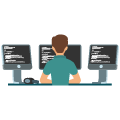 Website Designing Company In Delhi
Website Designing Company In Delhi  Ecommerce Website Development In Delhi
Ecommerce Website Development In Delhi  Php Web Development
Php Web Development 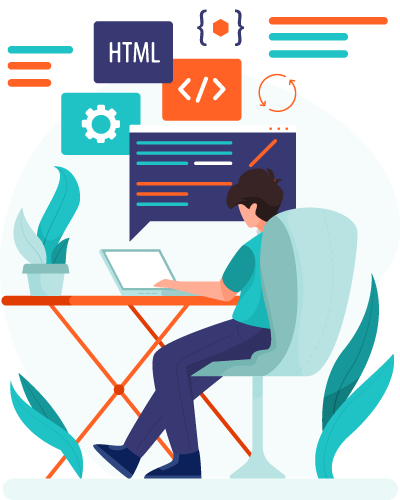 Laravel Developer
Laravel Developer 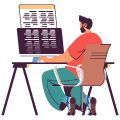 Website Development In Noida
Website Development In Noida 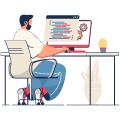 Website Development In Gurgaon
Website Development In Gurgaon 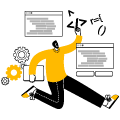 Website Development In India
Website Development In India  Website Development In Mumbai
Website Development In Mumbai 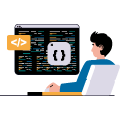 Website Development In Bangalore
Website Development In Bangalore  Website Development in Chennai
Website Development in Chennai  Website Development in Ahmedabad
Website Development in Ahmedabad 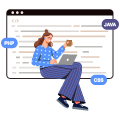 Website Development in Kolkata
Website Development in Kolkata 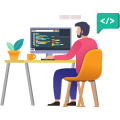 Website Development In Jaipur
Website Development In Jaipur  Website Development in Pune
Website Development in Pune 